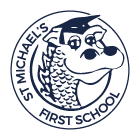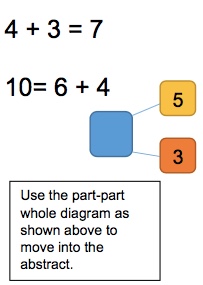Our Curriculum
Engage, Develop, Succeed.
We have designed a holistic, balanced and wide-ranging curriculum that takes our children on an unforgettable journey of discovery: science experiments, field trips, coding, drama, cricket, cooking, poetry, performance, calculations, music … amongst many.
Through the experiences that we offer, children are stimulated and challenged to reach their potential with many enrichment opportunities along the way.
Explore the curriculum tabs below to get a feel for each subject. You’ll also find topic overviews for each year group that detail the different topics that are covered throughout the school.
English - Reading
Reading is at the heart of all that we do and this begins as soon as your child enters our Early Years Foundation Stage (EYFS). The experiences that we offer in our nursery, reception classes and KS1 are fundamental in laying the foundations for future reading success.
To ensure that our children are given the best opportunity to succeed, we ensure that they are given daily reading teaching that build skills in reading fluency, accuracy and comprehension. Developing a culture of reading at St. Michael’s is fundamental to the progression not only in reading but across all other subjects.
In our classrooms, our teaching team will foster a love of reading by;
- Ensuring that the classroom has a reading area, containing challenging, age-appropriate texts that are of interest to the children.
- Caring for books through the use of the school library and pupil librarians.
- Finding daily opportunities for children to read independently.
- Ensuring that daily reading aloud of aspirational and engaging texts by teachers, pupils and visitors.
Pupils read regularly in all areas of the curriculum and throughout the school day:
- Reading in EYFS – Teachers work with small groups of pupils and 1:1 to teach specific and targeted reading skills in a book that is linked to their phonics knowledge using Collins Big Cat books linked to our Little Wandle phonics scheme. Teachers also lead whole class reading sessions using big books and story sacks to bring stories alive.
- Reading in KS1- In Y1 we listen to children read in groups and individually, making use of the various different reading schemes that we have in school. By using different schemes we expose the children to a wide variety of texts and styles. Year 1 use the Collins Big Cat scheme linked to Little Wandle phonics and Year 2 progress from here using a variety of texts to consolidate learning. In Y2 whole class guided reading takes place weekly.
- Reading in KS2 – In KS2, reading follows the whole class approach. These reading lessons are taught through a quality text which is chosen carefully by the class teacher; across the year the texts are chosen due to the many opportunities of vocabulary development they offer and children will engage in many reading activities which will promote a deeper comprehension of the text. Some children also have individual 1:1 reading sessions where required.
- Reading Across the Curriculum – Pupils read a range of books linked to other areas of their learning. There is very much a focus on reading across the curriculum, with children engaging in wider research, both online and through fiction and non-fiction texts.
- School Library Visits – We have two libraries in school. Children have an opportunity to visit the library each week to borrow a book to enjoy at home.
- Homework Learning – Children in the younger years take scheme reading books home. Older children are able to choose their own books from home and are also given a reading scheme book matched to their reading ability. All children & parents are asked to record their reading every day in their reading record.
- Special Events – We love to celebrate books and reading. Each year we celebrate World Book Day by dressing up and undertaking a variety of fun, book-based activities. We also have two book fairs during the year.
English - Writing
We use a ‘Talk for Writing’ approach across the school. It is powerful because it is based on the principles of how children learn. It enables children to imitate the language they need for a particular topic orally, before reading and analysing it, and then writing their own version.
The core teaching practices and principles that are transferable across subjects are:
- Keep it simple and clear
- Use a strong, core models
- Small steps, bit by bit, for new and hard material
- Pitch it high and expect everyone to succeed
- Provide feedback in lessons and after lessons
- Making use of learning walls
There is a great deal of information about the ‘Talk for Writing’ approach here if you would like to find out more.
Different key writing skills are taught in each year group. We cover a wide range of writing genres and use various texts, often linked to our topics, as a stimulus for writing. Our writing skills grid outlines the teaching content for each year group.
Phonics
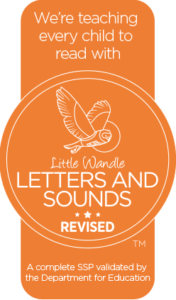
Here at St Michael’s we follow the Little Wandle Phonics scheme along side Collins Big Cat phonics books for home reading.
The link below shows the progression map from Autumn through to Summer for years R and 1 of the graphemes and tricky words taught.
Maths
We have a wealth of both physical and digital resources available in school to help deliver our maths curriculum and make great use of our outdoor environment to enhance learning.
Our termly maths overviews are available to download below, showing the topics taught in each year group.
Early Years Year 1 Year 2 Year 3 Year 4
Concrete, Pictorial, Abstract Approach (CPA)
This approach is a highly effective 3 stage process that develops a deep and sustainable understanding of mathematics. Developed by Jerome Bruner, CPA enables children to learn new mathematical concepts by introducing ideas in a more familiar way. It begins by using physical objects for children to manipulate, progressing to using pictorial representations of the objects and concluding with the use of abstract symbols.
Concrete
This is the ‘doing’ stage, using concrete objects to solve problems. It brings concepts to life by allowing children to use physical objects to model problems. Each new mathematical concept is learned first with a concrete (physical) experience. We have a wide range of resources in school to enable this stage of learning to happen effectively, such as cubes, counters, numicon, coins and dice.
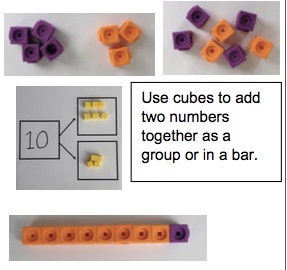
Pictorial
This is the ‘seeing’ stage, using representations of the objects involved in maths problems. This stage encourages children to make a mental connection between the physical object and abstract levels of understanding, by drawing or looking at pictures, circles, diagrams or models which represent the objects in the problem.
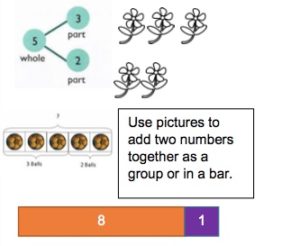
Abstract
Abstract is the ‘symbolic’ stage, where children are able to use abstract symbols to model and solve maths problems. Once a child has demonstrated that they have a solid understanding of the ‘concrete’ and ‘pictorial’ representations of the problem, our teachers introduce the more ‘abstract’ concept, such as mathematical symbols.
In order to gain a greater understanding of how the CPA approach is used throughout the school to teach different mathematical concepts you may wish to download our school calculation policy. We know that parents find this especially useful to refer to when supporting their child at home.
Number Facts and Multiplication Tables
We recognise the importance of children being able to rapidly recall key number facts. We make use of TT Rockstars and Numbots to support learning in this area, and these resources are available to use at home too! Find out more on our home learning page. To further support children’s learning, you can also download the free WhiteRose One Minute Maths app from the App store or Google Play. This supports the children’s development of number bonds.
Science
We use White Rose as the basis for our science curriculum alongside weekly forest school and outdoor learning for each year group.
We place a great emphasis on encouraging our children to work scientifically by ensuring that the 5 enquiry types feature throughout our teaching:
-Observations over time
-Pattern seeking
-Identifying, classifying and grouping
-Comparative and fair testing
-Research using secondary resources
Our learning is captured through hands on experiences, trips and exploring our woodland areas. Outdoor learning is important to our children and school ensuring everyone has the opportunity to explore nature, ask questions and continue their learning at home.
Sustainability is of great importance in our world and we explore this through two topics per year group focusing on areas such as plastic, biodiversity and food waste. We want to grow scientists of the future and the children at St Michael’s are key drivers of our future world.
Religious Education
- critical thinking
- global awareness
- SSMC development
- tolerance and respect of values and beliefs
- children’s place within their local community
Computing
We use the Rising Stars ‘Switched on Computing’ Scheme of work to deliver our computing curriculum. This is supplemented by additonal resources that are used to enhance the teaching of specific areas of the curriculum, the main ones being:
– Espresso Coding – for the teaching of computer coding. Find Out More
– Google Interland – for the teaching of KS2 Online safety. Visit Interland
Click here to view the Computing Progression Grid
PSHE and Citizenship
We follow the Entrust PSHE and Citizenship curriculm, designed to engage our children in learning the knowledge, understanding and skills to manage their lives and contribute to society. Our children will also learn how to become active, informed and responsible citizens.
The curriculum is broken down into 6 key areas, taught throughout the year and differentiated to each year group from foundation stage to KS2
- Me and my School
- Happy and Healthy Me
- Me in the World
- Me and my Safety
- Me and my Relationships
- Me and Other People
Documents regarding our PSHE curriculum can be found below:
Geography
Geography is about the study of places, the human and physical processes that shape them, and the people who live in them. Through their work in geography, children can make sense of their surroundings and learn about the human and physical features of their local area, comparing their life in this area with that in other regions in the United Kingdom and in the rest of the world. It helps pupils to make sense of their surroundings and the wider world, and to understand the ways of life and cultures of people in other places.
Design & Technology
DT is part of our broad and balanced curriculum at St Michael’s. The curriculum is designed to be inspiring and relevant, preparing children for the ever-developing world in which they live. The subject encourages the children to become creative problem solvers, both as individuals and as part of a team. DT is taught from our very youngest children in EYFS through to year 4, ensuring a development of skills and opportunities.
History
At St Michael’s we want history to be exciting and engaging so that the children develop a love of the subject! Please find below the links for the History Policy, the Whole School Curriculum Progression Map and the History Intent statement.
Music
At St Michael’s we believe that music education plays a vital role in providing children with a balanced education. Music not only enhances language and maths skills, memory and attention and social skills but can provide children with opportunities to discover new talents and foster a love of the arts.
Throughout our school, we follow the Charanga Scheme for Music (www.charanga.com) which is in line with The power of music to change lives: a national plan for music education document:
‘The national plan for music education sets out the government’s vision to enable all children and young people in England to:
- learn to sing, play an instrument and create music together
- have the opportunity to progress their musical interests and talents, including professionally’ (DFE Website June 2022)
In Year 3, peripatetic teachers from Entrust Music Service Staffordshire teach the children how to play glockenspiels which is then followed on in Year 4 where the recorder is taught.
Art
Art Intent
At St Michael’s First School, we want our pupils to be inspired, confident and enjoy taking part in art. When teachers present our activities to the class, they will equip the children with the knowledge and skills needed to create their individual pieces of art and develop a love for art. Our curriculum is organised to challenge and encourage engagement in art while developing an understanding of how art is part of our history and culture. We would like the children to experiment and be creative with a wide variety of media and be excited to link art to their outdoor environment. They will have the opportunity to study the lives and works of a variety of artists, to inspire them to develop their own artistic styles and techniques. Throughout their time as St Michael’s we will observe pupils’ progress and monitor their development in art knowledge and skills.
Media explored:
The main areas of art taught at St Michael’s include drawing, painting, printing, textiles and collage, sculpture and investigations into a wide variety of artists including the importance of local artists. The children also engage in outdoor learning to enhance their art.
Modern Foreign Languages
At St Michaels, our intent is to spark an interest and love in all of our children to pursue a foreign language in the future. This is achieved by introducing the children to our chosen MFL, French, which then continues to be taught in both feeder middle schools.
French is taught in all KS2 classes in a weekly lesson, following the PlanIt Scheme. During lessons each child will be given the opportunity and encouraged to:
• ask and answer questions;
• use correct pronunciation and intonation;
• memorise words;
• interpret meaning;
• understand basic grammar;
• work in pairs and groups, and communicate in French;
• look at life in France/French Culture.
Topic Overviews
Our overview documents provide information about the main topic for each half term and the subject content that is taught. There is an overview available for each year group.
Forest School
At St. Michael’s we are big believers in outdoor learning!
